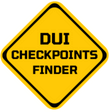What Are My Rights If I Am Arrested for DUI?

Driving under the influence (DUI) is a serious crime with significant consequences, and its implications affect individuals, families, and society as a whole. At DUI Checkpoints Finder, we don’t just help you locate DUI checkpoints; we are also dedicated to educating you about your rights. Remember, everyone is entitled to fair treatment and due process, even when facing a DUI charge.
DUI Law
Each state in the U.S. has its own set of laws and regulations regarding DUIs, but all follow a common ground – it’s illegal to operate a motor vehicle with a blood alcohol concentration (BAC) of 0.08% or higher. For drivers under 21, any amount of alcohol is grounds for a DUI charge, under what’s typically referred to as “zero tolerance” laws.
Your Rights at a DUI Checkpoint
When you get arrested for DUI, you still have rights. For example, you have the right to remain silent and not say anything that could be used against you. You also have the right to talk to a lawyer and have them with you when the police ask you questions. It’s important to know your rights and use them to protect yourself.
1. Right to Remain Silent:
You have the right to remain silent and not answer any questions from law enforcement. You can politely decline to answer questions that could potentially incriminate you. Remember, you’re not obligated to self-incriminate.
2. Right to an Attorney:
You have the right to an attorney. If you’re arrested for a DUI, it’s essential to consult with an attorney as soon as possible. They can provide legal advice, help you understand the charges, and represent you in court.
3. Right to Refuse Field Sobriety Tests:
You can refuse to perform field sobriety tests. These tests, like standing on one leg or walking in a straight line, are voluntary. It’s within your rights to decline them. However, refusing a chemical test, such as a breathalyzer, may result in consequences, such as license suspension.
4. Right to a Fair Trial:
You have the right to a fair trial. This means the right to present evidence, cross-examine witnesses, and have a neutral judge and jury hear your case. A fair trial ensures that your side of the story is heard.
5. Right Against Unlawful Searches:
Law enforcement must follow the law when conducting searches. If your vehicle or personal belongings are searched without a proper warrant or probable cause, your rights may be violated.
6. Right to Know the Charges:
You have the right to know the charges against you. This includes understanding the specific DUI laws you’re accused of violating, the potential penalties, and the legal process ahead.
7. Right to Due Process:
Due process ensures that the legal system treats you fairly. It involves following proper procedures and not depriving you of life, liberty, or property without a fair and just legal process.
8. Right to Protect Against Self-Incrimination:
You can’t be forced to testify against yourself. You’re protected under the Fifth Amendment, which means you don’t have to provide evidence that might incriminate you.
Updated: 09/03/2024
